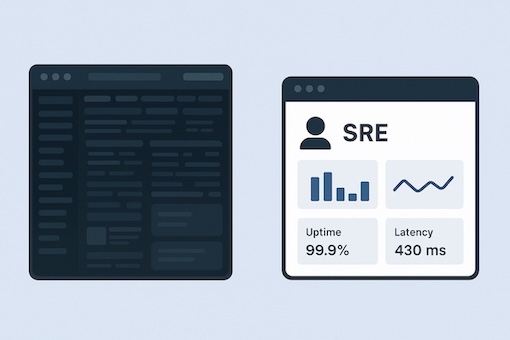Latest blog posts
DevOps resources tips and best practices
Zayna Shahzad, VP of Engineering at OneSignal, shares her insights and experiences in managing and scaling engineering teams. Her experiences highlight the importance of motivation, strong feedback mechanisms, and fostering a sense of ownership and accountability within a team.

What does it take to grow from an IC to a VP of engineering?
Zayna Shahzad, VP of Engineering at OneSignal, shares her insights and experiences in managing and scaling engineering teams. Her experiences highlight the importance of motivation, strong feedback mechanisms, and fostering a sense of ownership and accountability within a team.
Early in her career as a leader, Shahzad recalls struggling with a couple of key aspects of performance management — having difficult conversations with employees and making tough decisions.
She shared that within her first few months as a manager, she was tasked with letting someone go but didn’t feel she was equipped with the necessary skills to have such a difficult conversation — a challenge faced by many new to leadership
“It ultimately came down to setting expectations of what was reasonable and what was expected out of the responsibilities of a particular role,” Shahzad says.
Setting these expectations — and setting them early on — became a standard of her leadership technique and a key component to managing how often difficult conversations arise.
The goal is to avoid creating a space where employees can say they don’t know what success looks like for them or where they do things that are unaligned with what leaders would want by establishing clear expectations. Once expectations are set, leaders can move on to fostering motivation, ownership and accountability.
“Apart from learning that expectations need to be set on day one, I also learned that you can’t really save everyone. Set your expectations, but from there, it’s on them to do their piece as there’s only so much you can do as a manager,” Shahzad says.
“As we scaled up, we found we had extremely tightly coupled dependencies. There were too many people coordinating across different areas with too many different priorities, which created unalignment,” Shahzad says.
These dependencies became too convoluted and complex and caused there to be unnecessary limitations on what could be done and where. Employees were unable to become experts in what they worked on as a result of inconsistency and a lack of depth.
“One of the realizations I came to was every organization I had worked at previously had very vertical teams who were fully autonomous and could independently drive their own roadmaps,” says Shahzad. These teams had clear goals, clear KPIs, ownership and continuity.
This realization was the catalyst for overall reorganization toward a vertical structure where teams could establish autonomy and begin making their own decisions.
Keeping morale and productivity high can be difficult, especially in times of reorganization. Shahzad found maintaining open communication during the shift to a vertical structure boosted morale and drove productivity.
One of her preferred methods to open the line of communication between herself and her team was hosting a weekly ‘Coffee and Questions’ session where employees could submit anonymous questions or come speak with her in person.
“They ask me all sorts of interesting and challenging questions they would have no other avenue of asking. It helps to provide perspective so they can understand how they should be incorporating that into their daily work,” Shahzad says.
She found that hosting these sessions creates an opportunity for follow-ups regarding things that might otherwise go unnoticed and gives the space to start new conversations or have deeper discussions.
“Giving employees all these avenues to share their perspective and give feedback is incredibly vital for people to feel like what they do and say has meaning and results in outcome for the business,” says Shahzad.
Fostering a sense of meaning in your work allows employees to take ownership and accountability for their outcomes. It makes them feel like they have an impact, which boosts morale and keeps productivity moving.

Kenneth (Ken) Rose is the CTO and Co-Founder of OpsLevel. Ken has spent over 15 years scaling engineering teams as an early engineer at PagerDuty and Shopify. Having in-the-trenches experience has allowed Ken a unique perspective on how some of the best teams are built and scaled and lends this viewpoint to building products for OpsLevel, a service ownership platform built to turn chaos into consistency for engineering leaders.
Conversations with technical leaders delivered right to your inbox.
DevOps resources tips and best practices
.png)
.png)

